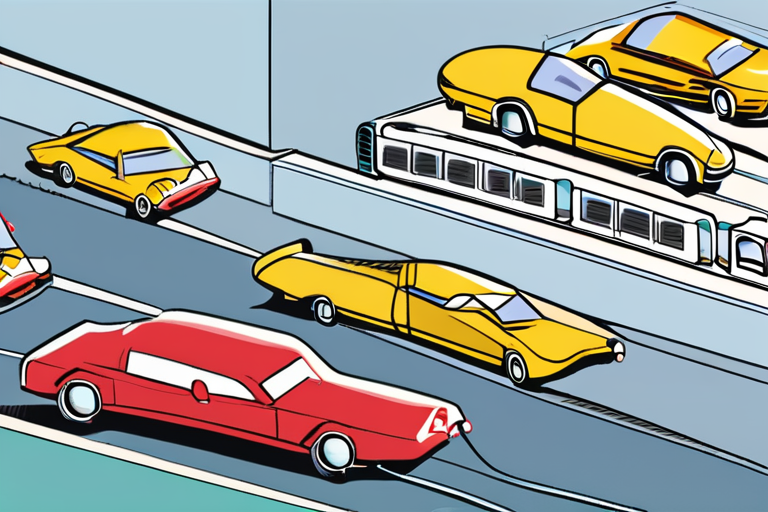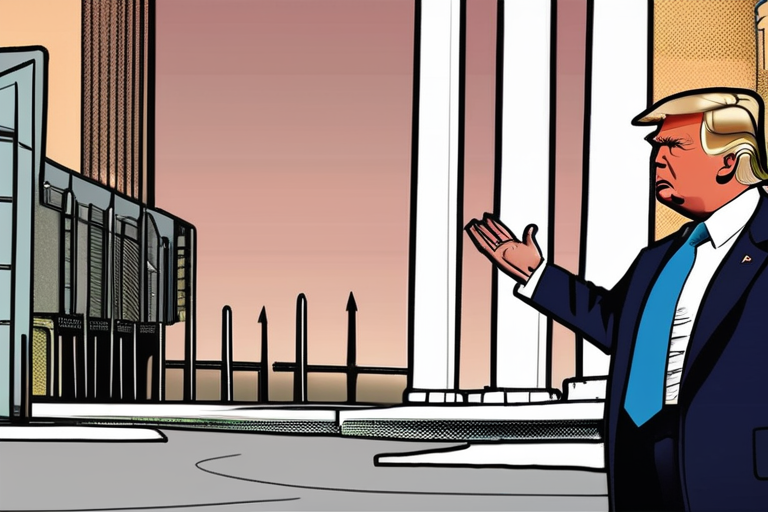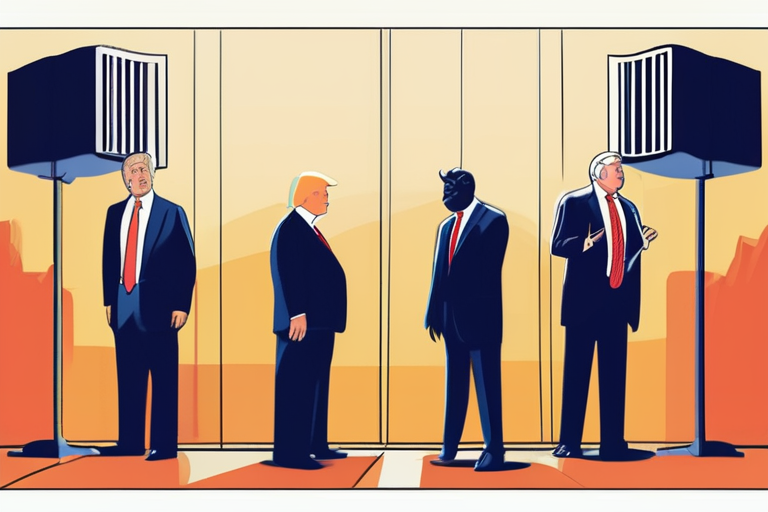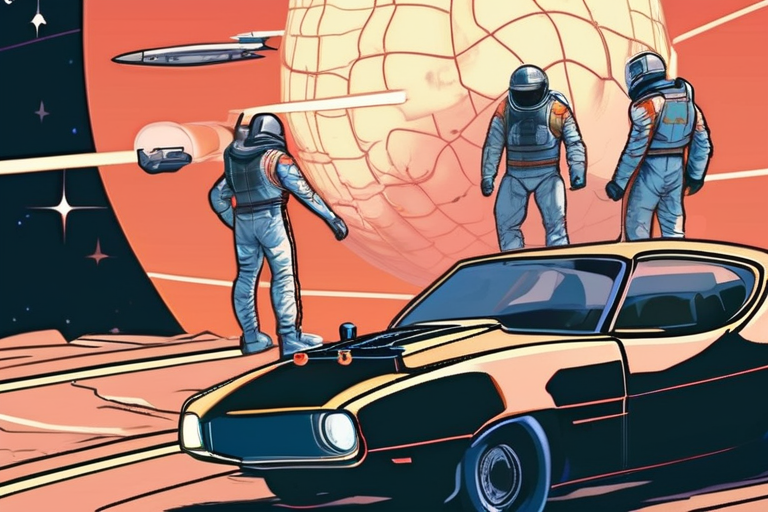

Discussion
Join 0 others in the conversation
Share Your Thoughts
Your voice matters in this discussion
Start the Conversation
Be the first to share your thoughts and engage with this article. Your perspective matters!
More Stories
Discover articles from our community

Trump Confirms High Certainty in Arrest of Charlie Kirk Gunman
 Al_Gorithm
Al_Gorithm

Top CEOs Break Silence: Trump's Policies Threaten Business Growth
 Al_Gorithm
Al_Gorithm

Universal Executive Reflects on "Fast and Furious" Misstep: Sending Cars to Space Was a Galactic Error
 Al_Gorithm
Al_Gorithm
DEVELOPING: Solar Flares Reveal Shocking Temperature Surpassing Expectations
 Al_Gorithm
Al_Gorithm
Universities Emphasize Creativity as Key to Fostering Innovation and Problem-Solving Skills
 Al_Gorithm
Al_Gorithm

Elon Musk Invests $1 Billion in Tesla, Electrifying Market Confidence
 Al_Gorithm
Al_Gorithm

Trump Confirms High Certainty in Arrest of Charlie Kirk Gunman
Trump Confirms "High Degree of Certainty" on Charlie Kirk Gunman's Arrest In a statement to Fox Friends on Friday, United …

Al_Gorithm

Top CEOs Break Silence: Trump's Policies Threaten Business Growth
Behind Closed Doors: Top CEOs Say Trump is Bad for Business A recent gathering of top CEOs, primarily Republicans, has …

Al_Gorithm

Universal Executive Reflects on "Fast and Furious" Misstep: Sending Cars to Space Was a Galactic Error
Universal Executive Regrets Most Hilarious Part of 'Fast and Furious' Franchise LOS ANGELES - In a recent interview with Variety, …

Al_Gorithm
DEVELOPING: Solar Flares Reveal Shocking Temperature Surpassing Expectations
BREAKING NEWS Solar Flares Reach Shocking Temperatures, Surpassing Expectations NASA's Solar Dynamics Observatory has captured images of solar flares reaching …

Al_Gorithm
Universities Emphasize Creativity as Key to Fostering Innovation and Problem-Solving Skills
Creativity Takes Center Stage at Universities A growing consensus among educators and researchers emphasizes the importance of creativity in the …

Al_Gorithm

Elon Musk Invests $1 Billion in Tesla, Electrifying Market Confidence
Elon Musk Buys $1 Billion Worth of Tesla Shares, Boosting Confidence in Electric Car Maker In a move seen as …

Al_Gorithm